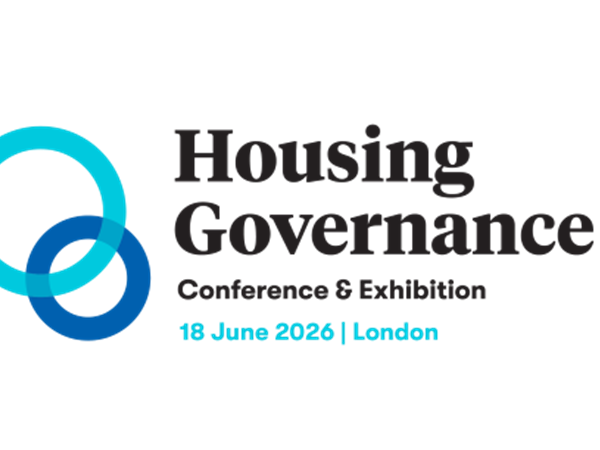Leading from the front: whg takes up the Chairs’ Challenge.
Gary Moreton, chair of whg, spoke to us about the actions they’ve implemented since signing up to the Chairs’ Challenge.
I was the third to sign up! The timing was perfect for us. Just like other housing associations, we had been doing a lot of work on equality, diversity and inclusion (EDI) for colleagues and for the organisation as a whole. We continue to work on that at pace.
We wanted to make sure that the board was leading from the front on this and was visible in this process. We were conscious as a board that we weren’t representative of the communities we serve or of our colleague groups. We’ve known for some time that we wanted to change that, and it’s not just ethnicity or gender, it’s also age and life experiences that we hadn’t got fully right. We knew we had to do something.
Our governance team had been working on a new succession strategy, as we had three board vacancies and three committee vacancies coming up: it provided an ideal opportunity. For us it was a no-brainer – it’s the right thing to do and we were going to join this come what may.
What whg did
We used the Inclusive Recruitment Toolkit as part of our succession strategy, and found the suggestion to be clear about current diversity statistics in the board pack very helpful. I don’t think we would have done that otherwise.
We managed the recruitment internally and were able to really shape our approach directly – we used our networks to push the advert out and had lots of conversations with people who said they might be interested in applying and encouraged them to do so. We’d done a piece of work to map out what skills and experience we needed.
When it came to selection we had a pool of 28 or so applications which were all suitable. Quite often when we have board recruitment we get applications from people who want any NED role, not specifically with us, and we didn’t get that this time. When we shortlisted, we had people who had very different skills from diverse backgrounds, who could bring different ways of thinking.
A different way of doing things
We appointed one person with no housing experience, but who had really great local connections across the areas where we operate. They have worked with organisations similar to ourselves and overlapped with lots of agencies that whg works with. I would never say that you don’t need housing experience on the board at all, but out of 10 or 12 people it’s really helpful to have someone who has that slightly different way of looking at things.
We also appointed a resident, which is fantastic and something we’ve been thinking about for a long time. It needed to be the right person with the right skills. Thinking ahead we want to see how we can develop them and other residents through our governance structure.
Dawn Hendon, our Corporate Director of Governance and Compliance, and her team masterminded the whole recruitment process and it went so well. I think we made the process user-friendly for applicants. We used social media and it was very much direct contact too, with people that we knew or suspected could be a great fit. Some people may not have had the confidence to apply, but having those conversations with potential applicants made sure we could remove any barriers and encourage those applications. We made it quite clear that you didn’t need previous board experience, as that’s something we can easily achieve through training. That approach was effective. The Inclusive Recruitment Toolkit has been helpful to sense-check our approach and inspire us to do things that we wouldn’t have done if that hadn’t been available.
Part of something bigger
The board was really positive about taking part in the challenge, there was a total understanding and enthusiasm for wanting to do this. When Dawn and I gave a brief based around what the NHF proposed, it was a quick decision! There wasn’t anything other than ‘oh yes, let’s do this’.
We ran an introduction to the Chairs’ Challenge session with board a couple of months ago using the slide deck, that was really useful to get people thinking about things in a new way. We’re planning to rerun the session at the end of this calendar year and with our new members, so it’ll be interesting to get their take on this.
“The Chairs’ Challenge elevates the work we were already doing, and linking to something the whole sector is involved in feels like we’re contributing to something bigger. It also adds an air of discipline, because we’ve signed up and my name is now in the public domain testifying that we are committed to this work.”
We’ve also been running lunch and learn sessions for colleagues, on allyship and unconscious bias and board have attended those too. I think it’s really helpful for our staff to see they’re getting involved, leading from the top. Our EDI champion on the board is involved in our colleagues’ voice forum and we’ve created space on the board for all the board champions to feed back on work that’s taking place on EDI. That’s a good way of keeping that topic fresh in their minds at a regular interval.
Overcoming challenges
Some of the challenges we faced are around making board level vacancies and applications accessible to people who might not necessarily know what it entails and who might rule themselves out straight away. We’ve had some success in that with our recent recruitment, but there’s more we can do, especially involving residents in our governance structure. We’ve got about 1,000 engaged residents who give their feedback on different topics and experiences to help shape our policy – there are many people there who may be interested in other opportunities.
Another key obstacle is that you need to have vacancies if you’re going to change the composition of the board. Having fixed terms of six years means that doesn’t come up that often. We’re moving having a three-year fixed term and we may want to recruit board members with specific skills for a shorter period, just one or two years. We need to be bold enough to have some more frequent appointments. There is an expectation that all being well it will be refreshed for three years, but we’ll have an intelligent conversation with board members where we share that we want to bring in x, y or z, to create more opportunities to refresh the board at appropriate times. It’s having that flexibility to do that.
Finally, we’re fishing in the same pool as everyone else. The agencies are good, but sometimes they use the same databases so you tend to get the likes of me – retired white men! The opportunity to mix that up slightly and do things through your own contacts, for us has worked very well.
Looking ahead
We want to look externally at what other sectors are doing in this space – that danger can be to focus just on housing but we need to build on our experience. We’re exploring bringing in board members through an associate pathway and want to learn from other housing associations who have done this. The Succession Planning for Inclusion report has been helpful to start those conversations.
We’re using and reporting on our EDI statistics each year and taking part in the NHF’s data toolkit. That’s a really good measurement for us and we’ve already seen some good progress. Aligned to this, we’ve recently introduced a cultural dashboard, which EDI very much comes into, for whg as a group and are currently getting to grips with the data coming out of that and how the board can feed into that. We need to continue having conversations with the board on what other ways we can measure our progress and keep up this momentum.
What would I say to another board consider joining the Chairs’ Challenge? Go ahead and do it! It’s the right thing to do, because you’re supporting and leading from the front. You’ll get a lot of benefit out of this. It can give your existing activity a direction and a focus, which is really helpful.










